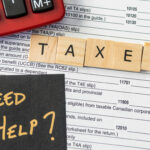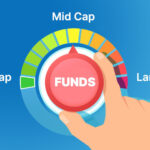As a freelancer or gig worker, managing your taxes can be challenging. Unlike traditional employees, you’re responsible for tracking your income, expenses, and tax obligations throughout the year. To help you navigate this complex landscape, here are some essential tax tips to keep in mind.
Understand Your Tax Obligations
As a self-employed individual, you’re required to pay both income tax and self-employment tax. The self-employment tax covers Social Security and Medicare contributions that would typically be shared between an employer and employee. It’s crucial to set aside a portion of your earnings throughout the year to cover these tax obligations.
Keep Accurate Records
Maintaining detailed records of your income and expenses is vital for accurate tax reporting. Use accounting software or spreadsheets to track all business-related transactions. This practice will not only make tax time easier but also help you identify potential deductions.
Take Advantage of Deductions
Freelancers and gig workers can often deduct various business expenses from their taxable income. Common deductions include:
- Home office expenses
- Vehicle expenses for business-related travel
- Professional development costs
- Business insurance premiums
- Marketing and advertising expenses
Be sure to keep receipts and documentation for all deductible expenses.
Make Estimated Tax Payments
Since taxes aren’t automatically withheld from your earnings, you’ll likely need to make quarterly estimated tax payments. These payments help you avoid penalties and a large tax bill at the end of the year. An Accotax tax accountant can help you calculate the appropriate amount for your estimated payments based on your projected income.
Separate Personal and Business Finances
Open a separate bank account and credit card for your business transactions. This separation makes it easier to track business income and expenses, simplifying your record-keeping and tax preparation process.
Consider Retirement Savings Options
As a self-employed individual, you have several retirement savings options that can also provide tax benefits. These include:
- Solo 401(k)
- SEP IRA
- SIMPLE IRA
Contributing to these accounts can help reduce your taxable income while saving for the future.
Stay Informed About Tax Law Changes
Tax laws and regulations can change frequently. Stay up-to-date with the latest developments that may affect your tax situation. Following reputable tax resources or consulting with a professional can help you remain compliant and take advantage of new opportunities.
Plan for Health Insurance Premiums
If you pay for your own health insurance, you may be able to deduct the premiums from your taxable income. This deduction can significantly reduce your tax liability.
Don’t Forget About State and Local Taxes
In addition to federal taxes, be aware of your state and local tax obligations. Some areas have specific requirements for self-employed individuals or gig workers.
Seek Professional Help
Navigating the complexities of self-employment taxes can be overwhelming. Consider working with a qualified tax professional, such as an Accotax tax consultant, who specializes in freelance and gig economy tax issues. They can provide personalized advice, help you maximize deductions, and ensure compliance with tax laws.
By following these tax tips and staying organized throughout the year, freelancers and gig workers can minimize stress during tax season and potentially save money on their tax bills. Remember, proper tax planning is an essential part of running a successful freelance or gig-based business.


 Understanding the Document Requirements When Filing Taxes
Understanding the Document Requirements When Filing Taxes  What are the best gift cards for subscription services?
What are the best gift cards for subscription services?  Different ways to pay for your plastic surgery procedure
Different ways to pay for your plastic surgery procedure  Benefits of Investing in Mid-Cap Funds
Benefits of Investing in Mid-Cap Funds  Why Funding Partnerships Demand Personal Guarantors and How A Funding Partnership Agency Can Help
Why Funding Partnerships Demand Personal Guarantors and How A Funding Partnership Agency Can Help  How to Avoid Common Financial Mistakes That Hurt Your Wealth
How to Avoid Common Financial Mistakes That Hurt Your Wealth  Bank Nifty Index and Best Demat Account Apps for Trading
Bank Nifty Index and Best Demat Account Apps for Trading  Essential Trading Tools Every Forex Trader Should Use in 2025
Essential Trading Tools Every Forex Trader Should Use in 2025  Why Estate Planning Service is Essential in Wealth Management
Why Estate Planning Service is Essential in Wealth Management 